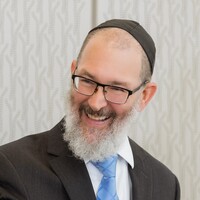"What do you see as your greatest asset as a teacher?"
A dozen eyes bored into me from different points of the compass. I returned their gaze, each pair in turn, relaxed and confident. I knew the question was coming. I had prepared for it.
"Discipline and classroom management," I replied.
Instantaneously, a smile blossomed upon the face of each and every board member. I smiled to myself. The job was mine.
Three months later, the same board wanted my head on a platter. Predictably, it was other parents' children who needed discipline ... not theirs.
They also attacked me for setting high expectations in the classroom. My multiple-choice questions had more than one possible answer. My essay questions required critical thinking, not just regurgitation. I was teaching college-level concepts to high school students.
Kids who had never scored below an A-level were earning Cs. Reliable B students were failing. Clearly, I was damaging both the children's college prospects and their self-esteem.
What might have helped was a passing familiarity with this week's addition to the Ethical Lexicon:
Vitrification (vit*ri*fi*ca*tion/ vi-truh-fi-key-shuhn) verb
The structural transformation of a substance into glass through heating followed by rapid cooling.
Exposure to extreme heat followed by extreme cold changes the molecular structure of matter and imbues it with new characteristics. Ceramic goes from being porous to impermeable. Living tissue becomes static rather than degenerative, as with cryopreservation. Radioactive waste becomes more stable and safer for disposal.
In the same way, human beings develop resilience only through environmental challenges. Did you ever wonder why Navy SEALs run obstacle courses? Wouldn't it make more sense to remove the obstacles so they can run the course faster?
Of course not. The point of the course is not to finish quickly, but to develop the fortitude to overcome obstacles. That way, when you're dropped behind enemy lines and outnumbered a hundred-to-one, your training will keep you alive and enable the mission to succeed.
For good reason, "snowflake" has become the favored pejorative for young people who melt under the mildest incandescence. But it's not their fault. They've been handicapped by snowplow parents who shield them from every form of discomfort and inconvenience. A small measure of vitrification would allow them to develop into fully functional adults and become, using the term popularized by Nassim Taleb, antifragile.
We ascribe fragility to an object that easily breaks. Resistance to breakage makes it sturdy, durable or tough. Antifragile means that it becomes resilient when exposed to stress, shock and volatility. What doesn't kill you makes you stronger is more than a catchy song lyric; it's a fact of life.
When King Solomon declared, "Spare the rod, spoil the child," he was not encouraging corporal punishment. He was reminding us that the scrapes and bruises that come from the blows dealt by an unforgiving world build young people into confident, capable and determined adults. Why would we wish anything less for our children?
Think back to the mentors who made a lasting difference in your life. Were they the ones who gave you easy tasks and stroked your ego with insipid compliments and awards? Or were they the ones who encouraged you to challenge them, who motivated you to think independently, to search for meaningful answers and to defend your positions?
If you were fortunate enough to have teachers and mentors like that, you've probably never been called a snowflake. If you didn't, you've probably stopped reading this already.
The school board didn't succeed in axing me that first year. The principal, who shared my vision of responsible educational practices, defended and protected me, for which I remain ever grateful. But our school was continuously embattled against well-intentioned parents more interested in keeping their children "happy" than imbuing them with the self-discipline that makes for a genuinely happy life.
And although many of the parents never recognized the benefits of high standards, a good number of students did. From time to time, word got back to me through the grapevine about tough teachers my former students had in college and graduate school. "Our classmates are freaking out," they reported. "But we had Rabbi Goldson. We've got this."
See more by Yonason Goldson and features by other Creators Syndicate writers and cartoonists; visit the Creators Syndicate webpage at www.creators.com.
COPYRIGHT 2025
CREATORS.COM
Photo credit: Joan Kwamboka at Unsplash






View Comments